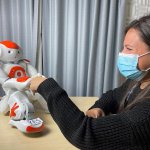
News • Mental health
Robots can be used to assess children’s mental wellbeing
According to a new study, robots can be better at detecting mental wellbeing issues in children than parent-reported or self-reported testing.

According to a new study, robots can be better at detecting mental wellbeing issues in children than parent-reported or self-reported testing.

Machine learning and artificial intelligence (AI) have the potential to transform cancer treatment management worldwide. Their ability to rapidly analyse and integrate routinely acquired diverse data will improve the accuracy and effectiveness of precision medical treatments.
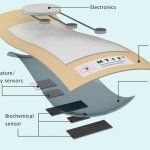
Researchers at Nottingham Trent University and Nottingham University Hospitals NHS Trust have developed a new biosensor capable of accurately monitoring the condition of a chronic wound.
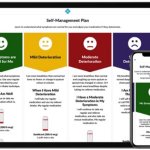
Artificial intelligence (AI) can be used to detect COVID-19 infection in people’s voices by means of a mobile phone app, according to research to be presented at the European Respiratory Society International Congress.
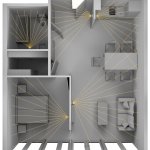
Swiss researchers have demonstrated how sensors could help detect health problems in the elderly at an early stage. This could help seniors to live a self-determined life at home for longer.

Atrial fibrillation screening using conventional smartphones more than doubles the detection and treatment rate in older people compared to routine screening, new research finds.

Cardisiography is a screening method for detecting structural, rhythmical, or vascular heart disease and a decision support tool to guide targeted follow-up. Meik Baumeister, CEO of Cardisio, talks about the development and the operating principle.

It might sound like science fiction but it is reality in cardiology: with the help of artificial intelligence (AI) physicians can recognize from a patient’s headshot whether the person is suffering from coronary artery disease and is therefore at risk of myocardial infarction. But is that knowledge really useful? Professor Dr David Duncker calls for a differentiated and careful assessment of…
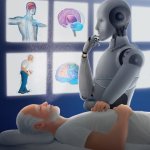
A device with the appearance of a Wi-Fi router uses a neural network to discern the presence and severity of one of the fastest-growing neurological diseases in the world: Parkinson's.
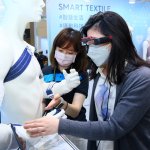
Holding its ground during the challenges of the pandemic, Health and Care Expo Medical Taiwan 2022 saw a 13% increase in visitors compared with last year, the organizers report.
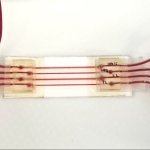
Researchers at McMaster University create device to replicate conditions in blood vessels after grafts.
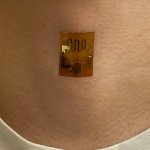
Engineers have developed a biofilm capable of producing long-term, continuous electricity from an individuals' sweat.

A new device, which doesn’t rely on immunosuppressing drugs, may assist efforts to develop an artificial pancreas to treat diabetes.

A project to develop advanced sensors for use in robotic systems could transform prosthetics and robotic limbs. It aims to develop sensors which provide enhanced capabilities to robot.

To monitor the lung function of patients with severe respiratory or lung diseases outside of an ICU, researchers have developed a vest that records noises with integrated acoustic sensors.
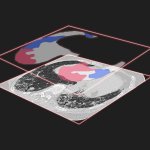
Researchers developed an AI that accurately and quickly diagnoses idiopathic pulmonary fibrosis, based only on information from lung images and medical information collected during daily medical care.
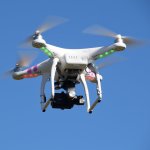
Researchers have developed a new Covid-19 test distribution method that uses drones to quickly deliver at-home diagnostic tests to individuals who suspect they have Covid-19.

Patients are 20% less likely to die of sepsis because a new AI system developed at Johns Hopkins University catches symptoms hours earlier than traditional methods, an extensive hospital study shows.
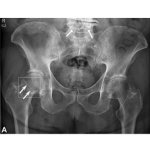
Fujifilm partners with Gleamer to integrate an AI software called BoneView into its X-ray imaging systems to assist radiologists and emergency clinicians in the diagnosis of skeletal fractures.
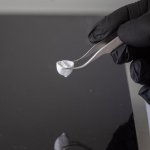
By recreating the helical structure of heart muscles, bioengineers improve understanding of how the heart beats.

MIT researchers produced textiles that sense the wearer’s posture and motions. Their “smart” shoes and mats could be used in applications ranging from health care to prosthetics.

Cambridge University Hospitals and the Faculty of Education are helping to bring medical training using 'mixed reality' technology a step closer.

Blockchain is a digital technology that allows a secure and decentralized record of transactions. Now, researchers leveraged blockchain to give individuals control of their own genomes.
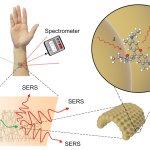
Researchers created a special ultrathin sensor, spun from gold, that can be attached directly to the skin without irritation or discomfort. The sensor can measure different biomarkers or substances to perform on-body chemical analysis.
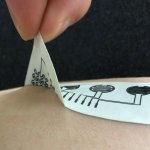
Researchers developed two concepts of wearable smart bioelectronic devices, materials for better real-time monitoring of a person’s health, including vitals.